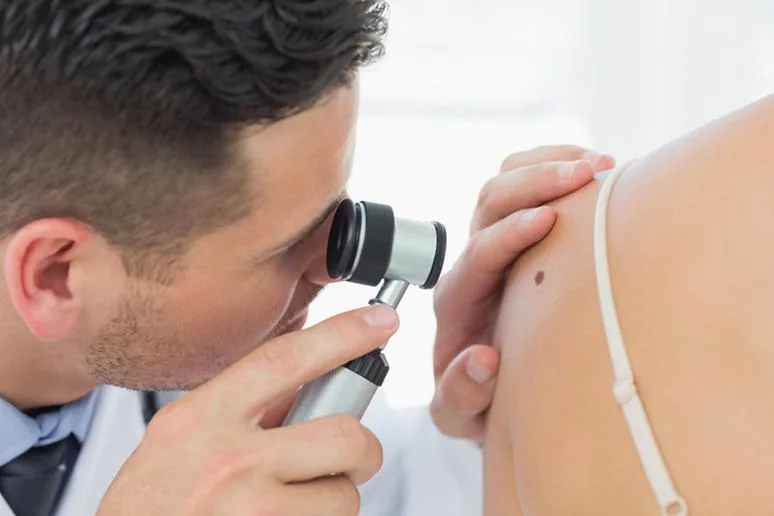Skin cancer is probably one of the most common types of cancer, which is known to affect a lot of individuals and will impact your longevity. Skin cancer can primarily occur when the skin is exposed to harmful ultraviolet rays for a long time. There are different kinds of skin cancer; however, irrespective of the kind that a person has developed, it can be treated based on the stage when it is caught. However, everyone knows that prevention is a lot better than cure. This is why you need to consider certain important ways of protecting your skin as well as making sure that you are staying miles away from skin cancer.
Protecting your skin from skin cancer
1. Getting a check-up
To discover skin disease on your body, you don’t need to recall an extensive run-down. Dermatologists summarize it as follows. It’s an ideal opportunity to see a dermatologist on the off chance that you notice a spot on your skin that:
- Contrasts from the others
- Changes
- Tingles
- Drains
To make it simple for you to check your skin, the American Academy of Dermatology made the Body Mole Map. You’ll discover all that you have to know on a solitary page. Outlines tell you the best way to inspect your skin as well as what to search for. There’s even a spot to record what your spots resemble.
The vast majority who locate a suspicious spot on their skin or streak underneath a nail feel fine. They don’t have any agony. They don’t feel sick. The main distinction they notice is the suspicious-looking spot. That spot doesn’t need to tingle, drain, or feel agonizing. In spite of that, skin malignant growth sometimes does.
In the event that you discover a spot on your skin that could be skin malignancy, it’s an ideal opportunity to see a dermatologist. Discovered early, skin malignancy is exceptionally treatable. Regularly, a dermatologist can treat early skin malignant growth by expelling the disease and a touch of ordinary-looking skin. Offered time to develop, treatment for skin malignant growth turns out to be progressively troublesome.
Visiting the dermatologist
Visiting your dermatologist annually is one of the best ways of keeping track of the several changes that your skin is going through, as stated by research. These changes can be in places where cancer starts showing up, and that is why you need to make sure that you are getting them checked. You need to know that sometimes non-healing pimples can also be responsible for cancer. Doctors can use a UV transilluminator to detect potential skin cancer.
Having a skin biopsy is basic. It’s the best way to know whether you have a skin disease. There’s no other method to know without a doubt.
How your dermatologist evacuates will take a gander under a magnifying instrument. The specialist who inspects the evacuated skin will search for diseased cells. In the event that malignant growth cells are discovered, your biopsy report will mention to you what sort of skin disease cells were found. At the point when malignancy cells aren’t discovered, your biopsy report will clarify what was seen under the magnifying instrument.
2. Wear sunblock regularly

An important thing to understand is that just because it is cloudy outside does not mean that the ultraviolet rays are not present. Ditching sunscreen is one of the things that you should not do. Even if you are exercising or you are swimming, you need to make sure that you are reapplying your sunblock every 20 minutes. Reapplication is extremely important when the ultraviolet index is high. The sunscreen that you are using needs to have a minimum SPF of 30.
3. Skip sunbathing
If you think that after applying sunblock, you are free to expose your skin to the harmful rays of the sun, you are wrong. Ultraviolet rays can be extremely harmful to the DNA present within your skin. Make sure that you are staying in the shade so that you can protect yourself from the unwanted symptoms of skin cancer.
4. Avoid tanning beds
The harmful radiation from a tanning bed is considered to be stronger in comparison to the radiation of the Sun. This can lead to mutations in the skin cells. Once your cells have been mutated, they will keep growing into cancerous tumors. Wrinkles will be caused by damaging epidermis and dermis. Apart from that, your skin will start looking sullen.
5. Wear proper clothing
The kind of clothing that you are choosing can go a long way in protecting you from the harmful radiation of the Sun. It is a good idea to choose clothes that have the UPF levels mentioned. Protecting the skin from the sun is undoubtedly one of the most important ways of cancer prevention as it can help in reducing the damage that the ultraviolet rays can have on the skin cells.
 6. Check your body
6. Check your body
If you spot anything unusual, make sure that you are visiting the dermatologist as early as possible.
Bottom Line
As mentioned, you can take several steps to protect yourself from skin cancer. Make sure that you are going through all the steps that have been mentioned above to take proper care of your skin.
References
AAD Body Mole Map: https://www.aad.org/diseases/skin-cancer/body-mole-map
US News Skin Cancer Prevention:
Who is the author?
Anthony Karen is a health expert who has been running many health seminars as well as public discussions. She also manages her blog as well as reviews the health-related details provided by authentic sources.



 6. Check your body
6. Check your body![women [longevity live]](https://longevitylive.com/wp-content/uploads/2020/01/photo-of-women-walking-down-the-street-1116984-100x100.jpg)











One Comment